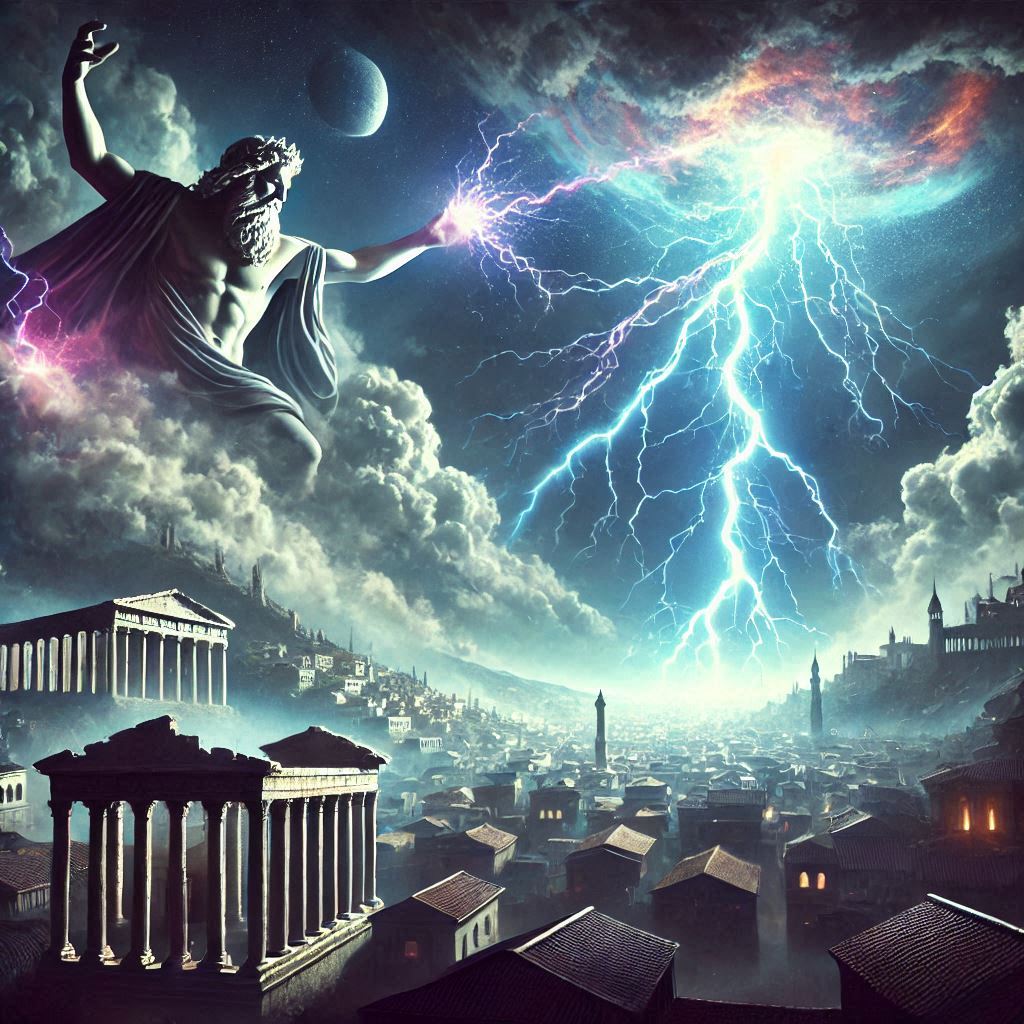Zeusophobia
Fear of God or Gods
Jump to the Article

Zeusophobia, the fear of God, a complex emotion rooted in reverence and awe, can stem from various sources. Many individuals who believe in a higher power may feel a sense of fear due to the perceived omnipotence and omniscience of the divine. The idea that God knows all their thoughts and actions, and that they are ultimately accountable for their choices, can be overwhelming. Additionally, the fear of divine punishment, particularly in traditional religious contexts, can contribute to this anxiety. The concept of eternal damnation or divine wrath can instill a deep-seated fear in believers, leading them to strive for perfection and avoid what they conceive of as sin.
From Olympus to the Divine: The Evolution of Zeusophobia
Originally, Zeusophobia was a specific fear tied to the ancient Greek god Zeus. As the supreme deity of the Greek pantheon, Zeus was a formidable figure, often depicted as a powerful and capricious god capable of unleashing thunderbolts and storms. Given his immense power and unpredictable nature, a fear of such a deity was understandable. Without an evolved scientific study and testing tradition, anthropomorphic attributions to nature were common and seemed true and real.
However, the term "Zeusophobia" has evolved over time to encompass a broader fear. It often refers to a general fear of God or "the gods," regardless of specific religious beliefs. This evolution can be attributed to several factors:
- 1. The Universal Fear of the Unknown: While the specific attributes of gods may vary across different religions, the underlying concept of a higher power often evokes a sense of awe and fear. The unknown, the unknowable, and the potentially punitive aspects of divine power can trigger anxiety and fear in many individuals.
- 2. Cultural and Religious Influences: Different cultures and religions have unique interpretations of the divine, which can shape individual experiences of fear. For example, the concept of divine judgment, hellfire, or eternal damnation can induce fear in believers.
- 3. Psychological Factors: Personal experiences, cultural upbringing, and individual psychology can also contribute to the development of Zeusophobia. Traumatic experiences, strict religious upbringing, or underlying mental health conditions can exacerbate feelings of fear and anxiety related to the divine.
While the specific manifestations of Zeusophobia may vary, the underlying emotion remains the same: a fear of the divine. As our understanding of religion, culture, and psychology continues to evolve, so too will our understanding of this complex and often misunderstood phobia.
The Fear of God in America: A Complex Tapestry
The prevalence of the fear of God in America is a complex issue influenced by various factors, including religious affiliation, cultural background, and personal beliefs. While it's difficult to quantify the exact extent of this fear, it's clear that it varies significantly across different regions and demographics.
Regional Variations:
- The Bible Belt: Regions like the American South, particularly the Bible Belt, often strongly emphasize religious orthodoxy and traditional values. This can lead to a more pronounced fear of divine judgment and a desire to conform to strict moral codes.
- Urban Centers: In urban areas, particularly on the coasts, religious affiliation and belief systems are often more diverse. While some individuals may fear God, others may embrace more liberal interpretations of faith or even agnosticism and atheism.
Psychological and Cultural Factors:
Beyond regional differences, individual psychological factors and cultural influences also play a significant role. For instance, individuals with anxiety disorders or those raised in highly conservative religious environments may be more prone to experiencing fear of God. Additionally, cultural norms and societal pressures can shape religious beliefs and practices, influencing the extent to which individuals fear divine punishment or seek divine favor.
It's important to note that the "fear of God" concept is multifaceted. While it can be associated with negative emotions like anxiety and dread, it can also be seen as a positive force, inspiring reverence, humility, and a desire to live a virtuous life. Ultimately, the experience of the fear of God is subjective and varies widely from person to person.
Is the "Fear of God" always a phobia?
In many religious traditions, the "fear of God" is considered to be a good thing, a goal to achieve and maintain.
However, it's important to understand that this "fear" isn't a cowering terror, not a phobia in the usual sense, but rather a profound respect and reverence for what is believed to be a higher power. It's a stance of what one believes is a recognition of God's majesty, power, and holiness. This fear is believed to be helpful in several ways on one's spiritual journey:
"Fear of God" can lead to:
- Humility: A sense of one's insignificance compared to the divine can foster humility and a desire to live a virtuous life.
- Moral Guidance: The fear of divine judgment can motivate individuals to adhere to moral principles and avoid wrongdoing.
- Spiritual Growth: A healthy fear of God can deepen one's spiritual connection and inspire a desire to know and love the divine.
It's important to note that this particular "fear of God" concept is often misunderstood as a negative emotion. Instead, it's considered to be a positive, motivating force that can lead to spiritual growth and personal transformation.
Sources
- "Zeus" - Britannica. Accessed December 16, 2024.
